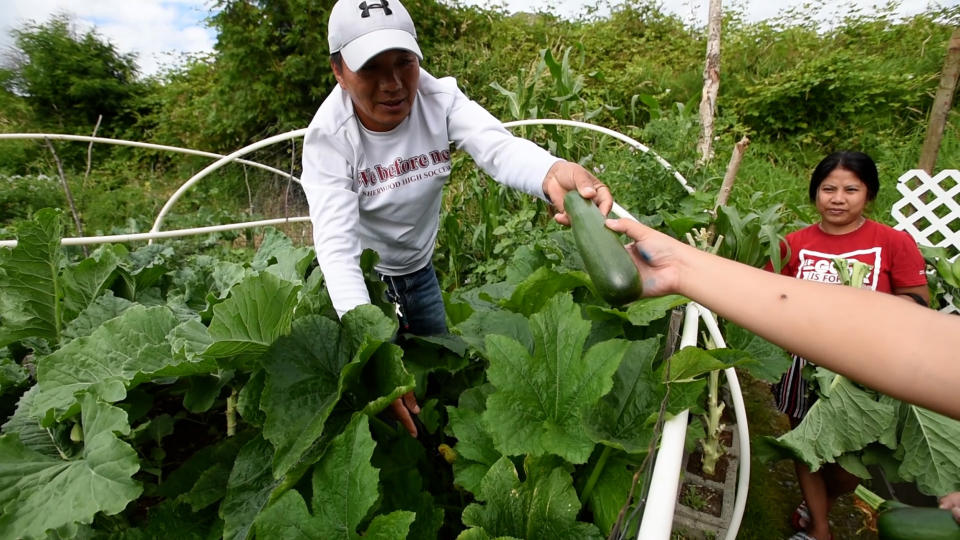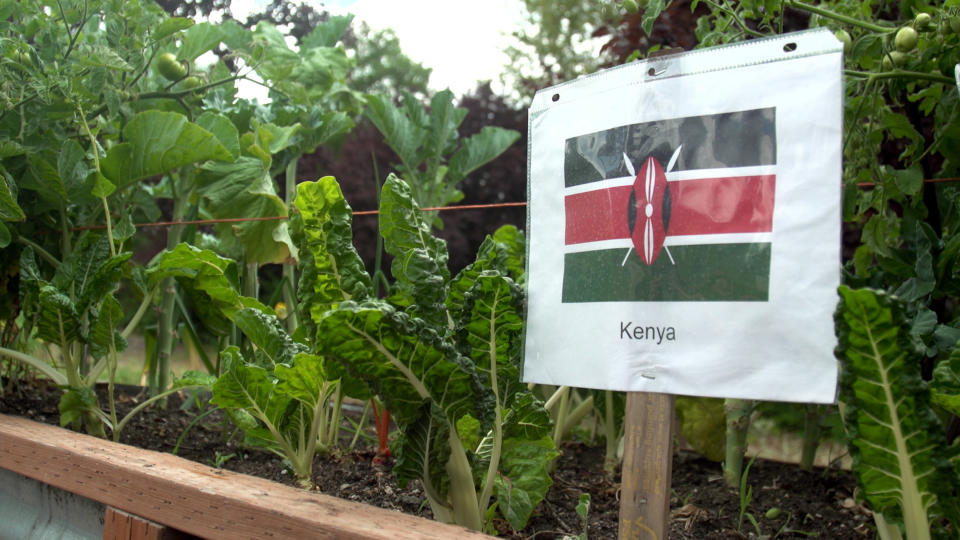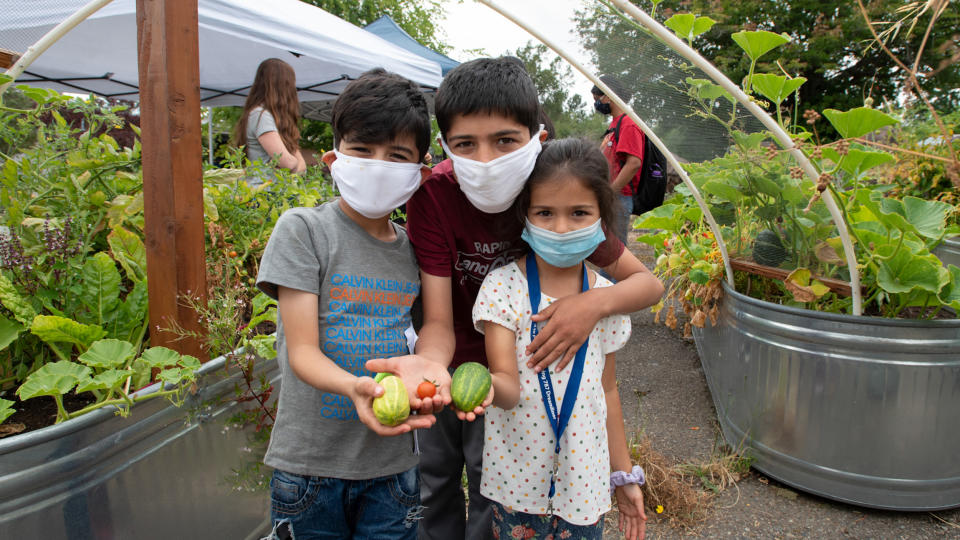Community garden provides refugees with support and comfort through pandemic
A community garden in Seattle, Washington is providing a place for immigrants and refugees to come together and find community while growing food from their home countries.
Once a neglected parking lot, the garden, known as Paradise Parking Plots, is now a place for people to gather and tend to their plants.

"We have de-paved over 50,000 square feet of asphalt and put in garden beds," said Tahmina Martelly, a program manager for World Relief Seattle, which founded the garden. "We have 44 in-ground beds and six handicap access beds. We have people from 23 countries growing culturally appropriate foods and making friends with each other."
Martelly, who immigrated to the United States from Bangladesh and has worked in refugee resettlement for more than two decades, said that the space has only become more important amid the coronavirus pandemic.

"We see gardeners in this garden who are coming in the middle of a pandemic and growing their food," Martelly said. "Often, I'll have gardeners tell me, 'My plants don't know there's a pandemic. We expect to have food, because we put the work in.' Having the power to grow your own food, a virus can't take that away."
Gardeners include Prem Adhikari, a Bhutanese refugee who grows mustard greens and long sod beans and has been working in the garden for over three years.
"It's very difficult to go to market and buy the vegetable ... (but) we have a garden, like a life to meet other people," Adhikari said. "... It's a lot of fresh, green, without chemical vegetables."
In recent years, the garden's mission has grown. Martelly said the organization now offers a summer academy where children learn about science in the garden. Even amid the pandemic, children have been able to get outside and learn about the world around them. Those classes are taught by interns like Risa Suho, who immigrated from the Philippines in 2008.
"As an immigrant, it's super important, especially for these younger children, to see someone who kind of looks like them and can relate to their experience," said Suho, who primarily teachers kindergarten and first grade-age students. "... Not to make my head sound super big, but I think it's slightly inspirational if kids look up to teachers. They are leaders to kids. I couldn't imagine what it would be like for me if I was younger, if I saw someone who was like me in a leadership position."

Martelly said that the garden is a place for immigrants to form friendships and other close connections.
"Many of these countries are in conflict with each other, and people will say, 'Our countries might be fighting, but we are not. We are friends,'" she explained. "... To live in a place that is very, very different often takes time, and it takes patience, and it takes resilience to call a new place your home."

